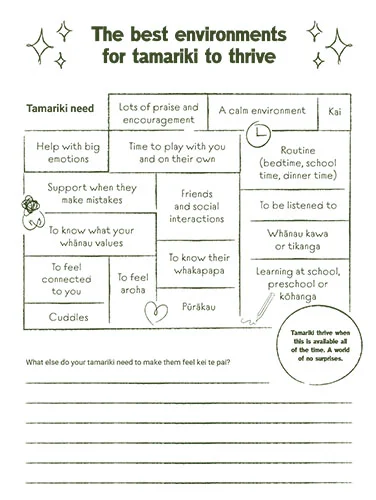
Why have rules?
Understanding the reasons we need rules, and sharing examples.
Learning goals
- Understand the role of rules in managing whānau behaviour.
- Build the confidence and ability to parent positively.
Discuss the reasons for rules
You could start the workshop by saying that tamariki need rules and boundaries, and our homes need rules and boundaries. Ask the group:
- Why do you think this is?
At home you might call them ‘rules’, or something different. You might call them ‘guiding lights we live by in our whānau’. It doesn’t matter what you call them, what matters is that they’re put into practice with respect, rather than an ‘iron fist’.
Ask the group to look at an example from sport:
- Think about a game you enjoy playing.
- What rules are there for that activity?
- Why do we need those rules?
Offer some ideas if needed. For example, sports rules:
- keep people safe
- make sure everyone knows what to do
- keep things fair
- make it a game that everyone knows how to play and can enjoy.
What would happen if we didn’t have rules in that game?










